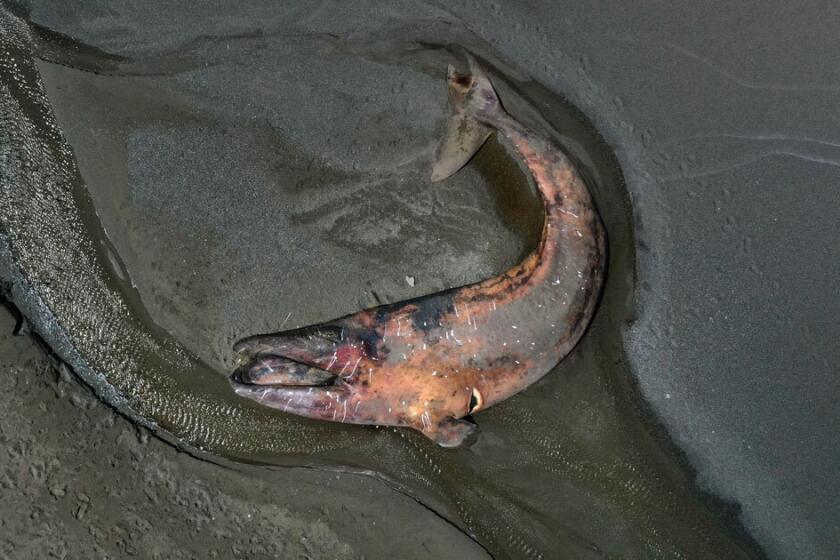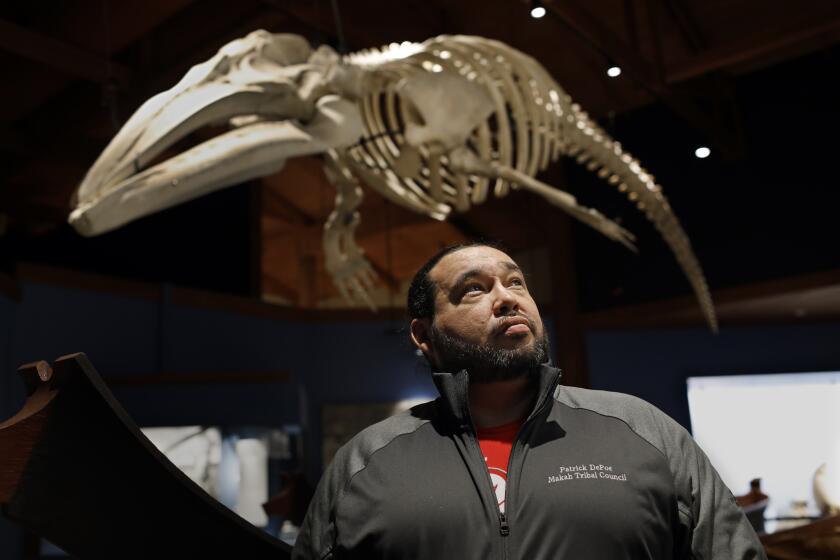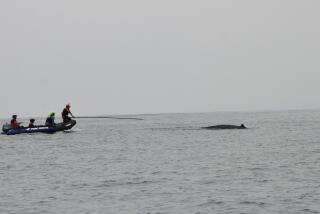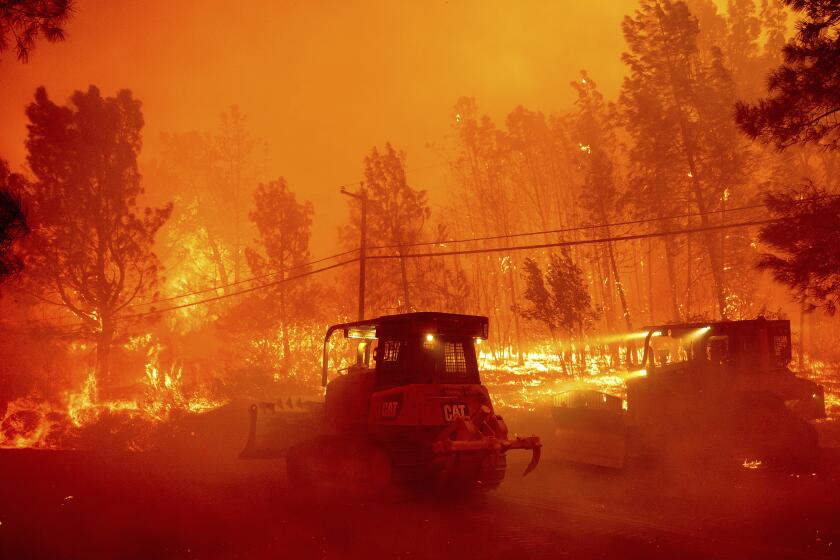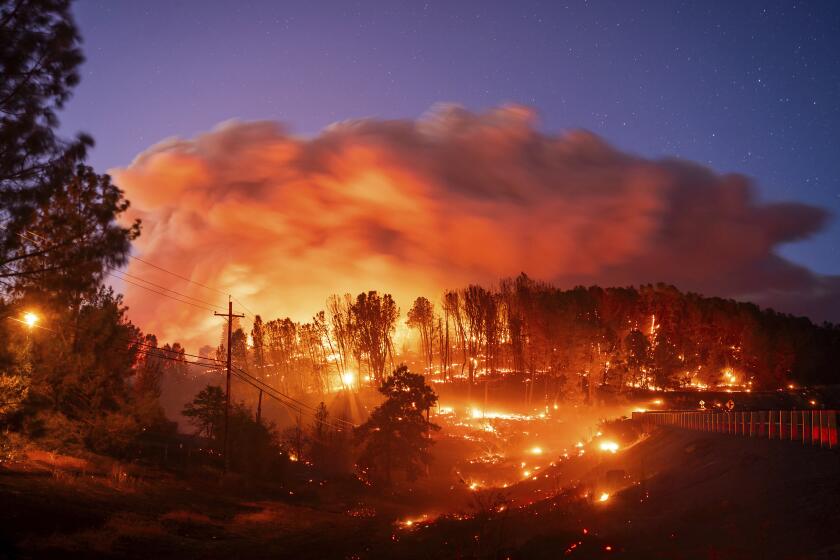Makah tribe wins ruling that could allow it to hunt gray whales off Northwest coast
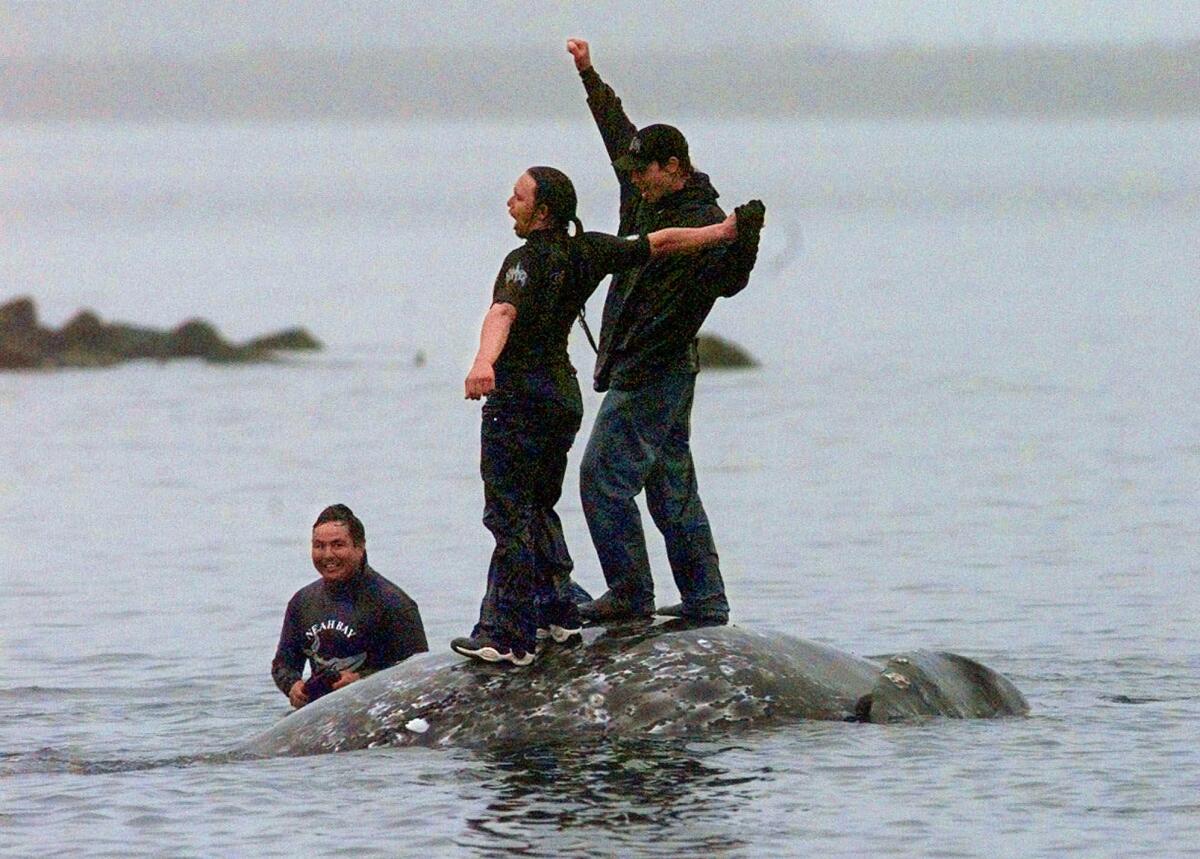
An judge has recommended that a Native American tribe in Washington state once again be allowed to hunt gray whales — a major step in its decades-long effort to resume the ancient practice.
“This is a testament to what we’ve been saying all these years: that we’re doing everything we can to show we’re moving forward responsibly,” Patrick DePoe, vice chairman of the Makah Tribe on the remote northwestern tip of the Olympic Peninsula, said Friday. “We’re not doing this for commercial reasons. We’re doing it for spiritual and cultural reasons.”
DePoe was in high school in the late 1990s when the Makah were last allowed to hunt whales — occasions that drew angry protests from animal rights activists, who sometimes threw smoke bombs at the whalers and sprayed fire extinguishers in their faces.
Since then, the tribe’s attempts have been tied up in legal challenges and scientific review. A federal appeals court ruled in 2002 that the Makah needed a waiver under the Marine Mammal Protection Act; the tribe applied for one in 2005 but still hasn’t received it.
On Thursday, nearly two years after he presided over a hearing on NOAA Fisheries’ proposal to approve the waiver, Administrative Law Judge George Jordan issued his 156-page recommendation to the U.S. Department of Commerce. He found that the tribal hunts would have no effect on the overall population of gray whales, despite an unexplained die-off that has caused hundreds to wash up on the Pacific Coast since 2019, reducing the population of the species to well below the 27,000 estimated in 2017.
In 2019, the National Oceanic and Atmospheric Administration launched an investigation into gray whale mortality. The investigation is ongoing.
The recommendation, along with a public comment period and further environmental analysis, will inform the department’s final decision, though no timeline for that has been set.
As proposed, the waiver would allow the tribe to land up to 20 Eastern North Pacific gray whales over 10 years, with hunts timed to minimize the already low chances of the hunters accidentally harpooning an endangered Western North Pacific gray whale.
While Jordan found the waiver’s issuance appropriate, he also recommended additional restrictions that could drastically cut the number of whales the tribe kills — perhaps as low as five whales over the decadelong waiver period. DePoe said the tribe is reviewing that recommendation but called it a potential source of frustration and further discussion.
The tribe hopes to use the whales for food and to make handicrafts, artwork and tools it can sell.
The Sea Shepherd Conservation Society and Animal Welfare Institute oppose the hunts, which many animal rights activists consider cruel and unnecessary. They argued that NOAA’s environmental review has been inadequate, that the Marine Mammal Protection Act may have voided the tribe’s treaty right, and that the tribe cannot claim a subsistence or cultural need to hunt after so many decades.
Sea Shepherd said in an email Friday it was reviewing the decision and had no immediate comment.
DJ Schubert, a wildlife biologist for the Animal Welfare Institute, said in an emailed statement the organization was disappointed with the recommendation.
“All gray whales ... face critical anthropogenic threats from climate change, ocean noise, oil and gas development, pollution, coastal development, contaminants, bycatch, and ship strikes,” Schubert said. “In light of these acute threats, a hunt of these animals is biologically insupportable and inconsistent with the protective provisions of the MMPA.”
There are fewer than 300 Western North Pacific gray whales remaining, Schubert said, and the recommended additional restrictions would not completely eliminate any risk to them.
Evidence presented to the government showed that the Makah, who now number about 1,500 members, have hunted whales for more than 2,700 years. The tribe’s 1855 treaty with the U.S. reserved the “right of taking fish and of whaling or sealing at usual and accustomed grounds.”
The Makah continued whaling until the 1920s, when commercial whaling had devastated gray whale populations. The whale population rebounded in the eastern Pacific Ocean by 1994, and they were removed from the endangered species list.
The Makah tribe wants to resume hunting gray whales, allowed under a U.S. treaty. But marine law forbids it, and even advocates of Native American rights question the ethics.
The Makah trained for months in the ancient ways of whaling and received the blessing of federal officials and the International Whaling Commission. They took to the water in 1998 but didn’t succeed until the next year, when they harpooned a gray whale from a hand-carved cedar canoe. A tribal member in a motorized support boat killed it with a high-powered rifle to minimize its suffering.
DePoe was on a canoe that greeted the returning whalers as they towed in the whale, and his high school shop class worked to clean the bones and reassemble the skeleton, which hangs in a tribal museum.
“The connection between us and the whales is strong,” he said. “Tribes across the Northwest have always considered ourselves stewards of the land, stewards of the animals. We’re not trying to do anything that is going to add to the depletion of these resources.”
Times staff writer Susanne Rust contributed to this report.
